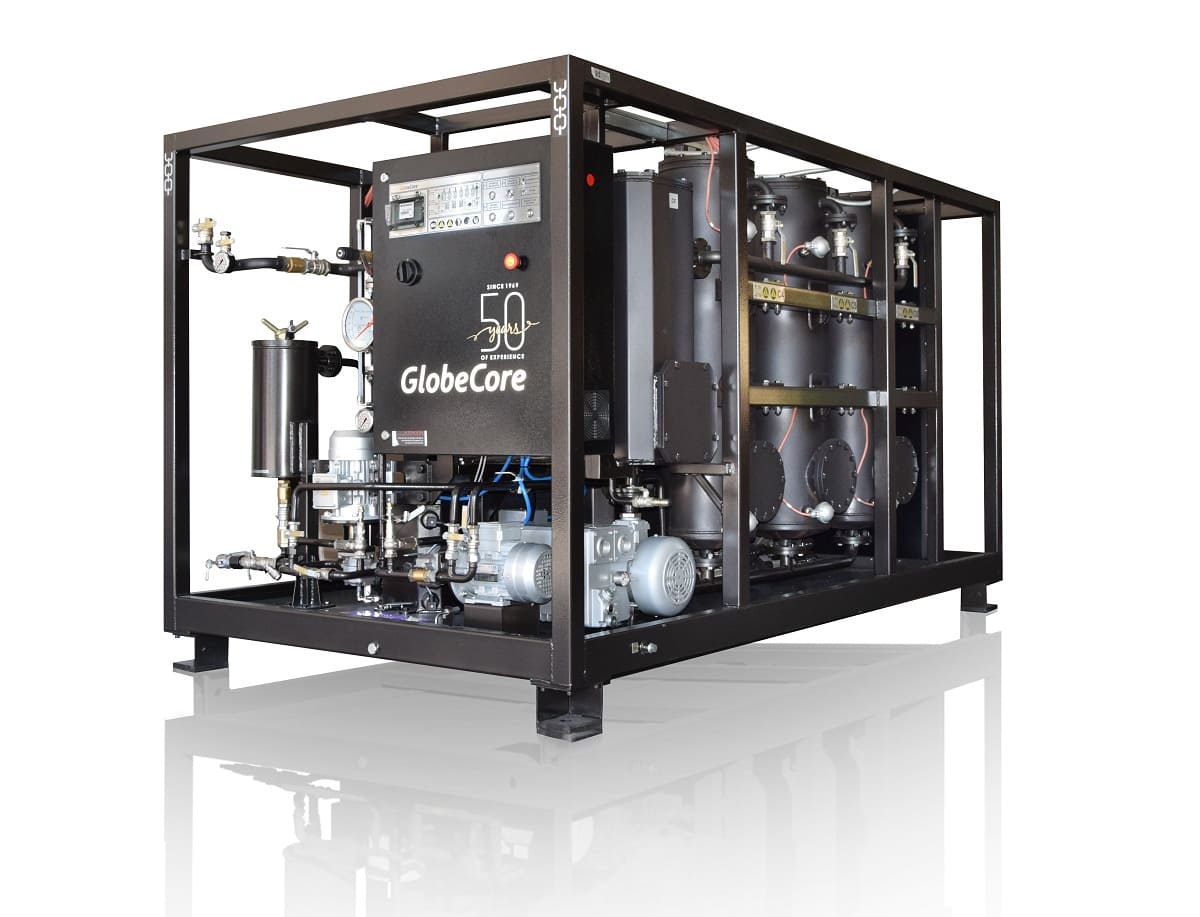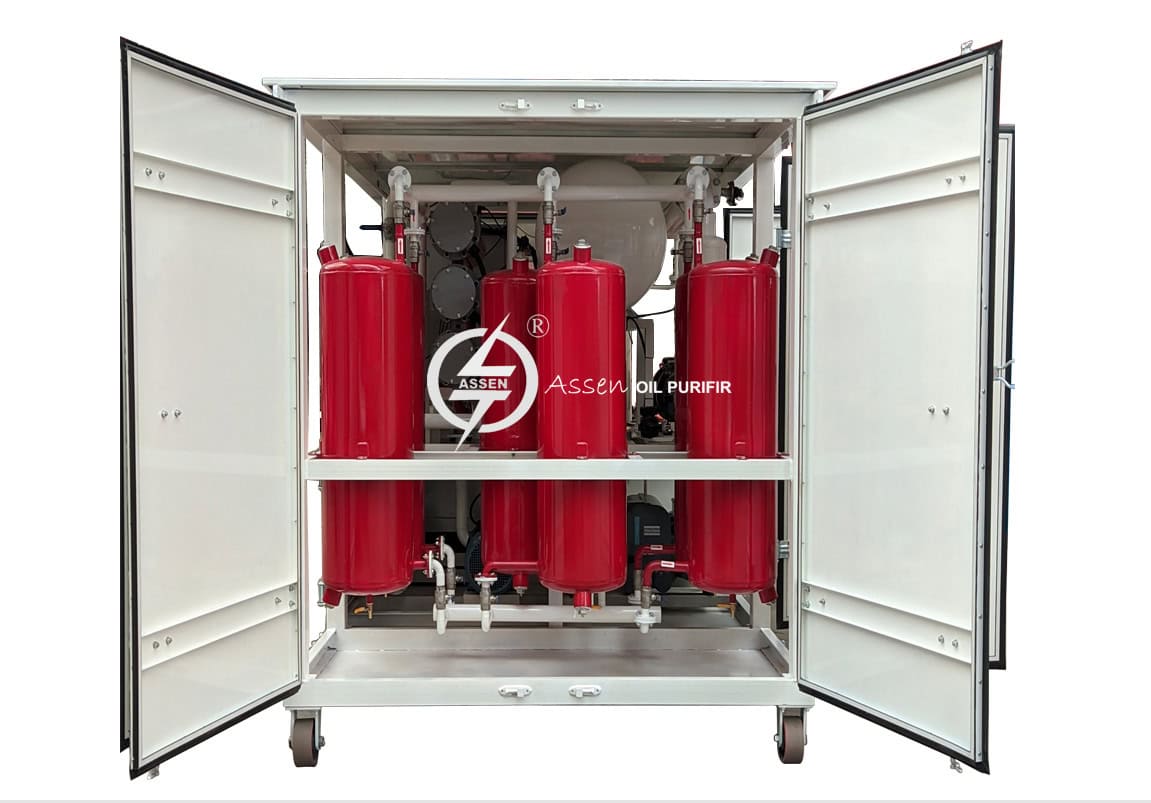Why Regenerated Transformer Oil Is Crucial for Reliable Power Systems
The critical role of regenerated transformer oil in making certain the reliability of power systems can not be overstated. By restoring the oil's fundamental chemical and physical residential properties, the regeneration process significantly enhances its dielectric strength and thermal performance.
Relevance of Transformer Oil
Transformer oil plays a crucial role in the efficient operation of electrical transformers. By providing thermal conductivity, transformer oil dissipates heat created throughout electric procedure, which is vital for preserving ideal operating temperatures and prolonging the life-span of the tools.
In addition, transformer oil works as an obstacle versus wetness and air, which can result in oxidation and degradation of transformer materials. The existence of contaminants in the oil can substantially hinder its insulating buildings, causing functional inefficiencies and potential tools failure. Regular surveillance and upkeep of transformer oil are for that reason crucial to guaranteeing the proceeded efficiency of transformers.
The quality and make-up of transformer oil are vital, as they directly influence the dependability and efficiency of the electric systems in which they operate. Recognizing the value of transformer oil is necessary for utilities and sectors reliant on robust power framework, highlighting the need for reliable administration and regeneration procedures to preserve oil integrity with time.
Advantages of Regrowth Process

Furthermore, the regrowth procedure mitigates the destruction of oil, which can cause increased oxidation and acid formation. This not only enhances the dependability of the oil yet additionally lowers the risk of transformer failures due to insulation break down. The improved high quality of regrowed oil enables transformers to run at ideal degrees, inevitably bring about boosted power performance and lowered functional prices.
In addition, the regrowth procedure adds to keeping the total wellness of the power system. Transformers can run much longer without the demand for oil substitute, hence minimizing downtime and maintenance efforts. In summary, the regeneration process provides significant benefits by enhancing the longevity and performance of transformer oil, making certain that power systems run accurately and successfully over time.
Environmental Impact and Sustainability
The regeneration process of transformer oil dramatically reduces environmental problems connected with oil disposal and waste administration. Conventional disposal techniques for utilized transformer oil position substantial threats, consisting of dirt contamination and water contamination. By regrowing oil, these dangers are significantly decreased, as the procedure reuses existing resources rather than adding to throw away buildup.
Additionally, regenerated transformer oil can be reused in different applications, which advertises a round economy. This not just reduces the need for virgin oil removal-- a procedure that can be ecologically destructive-- however additionally saves all-natural resources. The regrowth process itself utilizes advanced filtering and filtration techniques that get rid of dangerous contaminants, ensuring that the end product goes beyond or satisfies industry requirements for efficiency and safety.

Enhancing Transformer Performance
Substantial enhancements in transformer efficiency can be achieved via making use of regenerated transformer oil. This oil, produced via advanced filtration processes, substantially boosts the electrical insulation homes of transformers. By eliminating pollutants and contaminants that commonly endanger efficiency, regrowed oil makes sure premium dielectric toughness, reducing the risk of electric failings.
Furthermore, regenerated transformer oil displays improved thermal conductivity, which helps with efficient heat dissipation. This characteristic is crucial for preserving ideal operating temperatures, thereby prolonging the lifespan of transformers and decreasing the chance of getting too hot - Regenerated Transformer Oil. Boosted thermal monitoring likewise contributes to the overall reliability of power systems
In addition, the chemical security of restored oil stops the development of destructive acids and sludge, which can detrimentally affect transformer components. By preserving a cleaner inner environment, this oil lessens maintenance demands and extends service periods.
Cost-Effectiveness and Efficiency
In regards to cost-effectiveness and performance, regrowed transformer oil presents a compelling Transformer Oil Regeneration Plant option to traditional oils. The regeneration procedure not only gets rid of impurities however likewise restores the oil's initial residential or commercial properties, expanding its practical lifespan. This long life converts right into decreased frequency of oil substitute, therefore reducing functional expenses over time.
In addition, the usage of restored oil can significantly lessen power losses related to inefficient shielding fluids. Its exceptional dielectric homes make certain optimal efficiency, boosting the reliability of power systems. Consequently, organizations gain from lower maintenance expenses and lowered downtime, fostering a much more effective functional environment.

Final Thought
In verdict, the regeneration of transformer oil plays an important duty in guaranteeing the dependability and efficiency of power systems. By recovering the vital chemical and physical homes of the oil, this process boosts dielectric strength and thermal conductivity, eventually reducing the risk of insulation breakdown. The ecological benefits connected with reusing sources add to sustainability initiatives, while cost-effectiveness and improved efficiency underscore the requirement of making use of regenerated transformer oil in contemporary electrical infrastructure.
Transformer oil plays an important duty in the effective operation of electrical transformers. Normal surveillance and maintenance of transformer oil are therefore important to making sure the proceeded effectiveness of transformers.
The regeneration procedure of transformer oil substantially minimizes environmental problems connected with oil disposal and waste management. By lengthening the lifecycle of transformer oil, the power and resources typically eaten in producing brand-new oil are substantially decreased.Substantial enhancements in transformer performance can be attained through the usage of regenerated transformer oil.